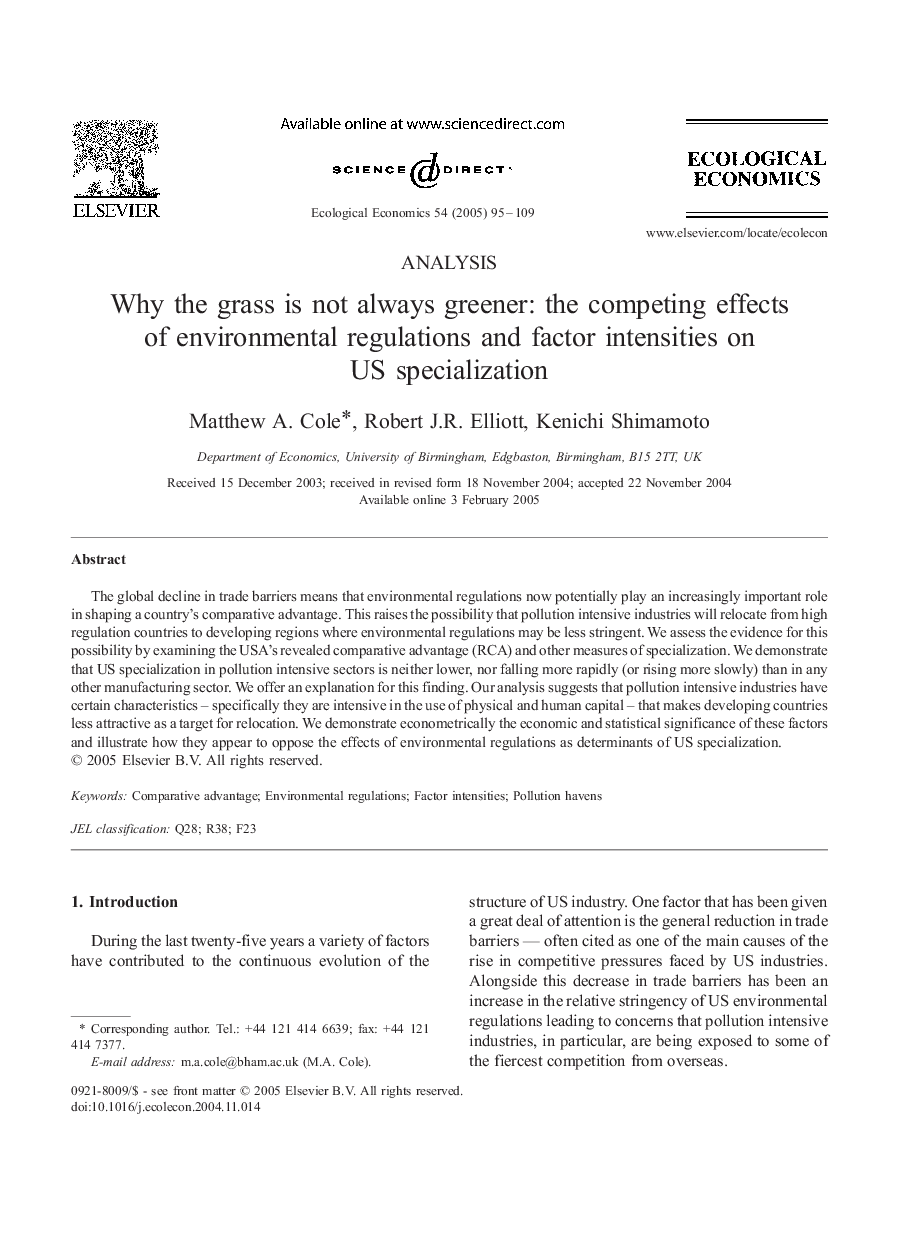| Article ID | Journal | Published Year | Pages | File Type |
|---|---|---|---|---|
| 9547638 | Ecological Economics | 2005 | 15 Pages |
Abstract
The global decline in trade barriers means that environmental regulations now potentially play an increasingly important role in shaping a country's comparative advantage. This raises the possibility that pollution intensive industries will relocate from high regulation countries to developing regions where environmental regulations may be less stringent. We assess the evidence for this possibility by examining the USA's revealed comparative advantage (RCA) and other measures of specialization. We demonstrate that US specialization in pollution intensive sectors is neither lower, nor falling more rapidly (or rising more slowly) than in any other manufacturing sector. We offer an explanation for this finding. Our analysis suggests that pollution intensive industries have certain characteristics - specifically they are intensive in the use of physical and human capital - that makes developing countries less attractive as a target for relocation. We demonstrate econometrically the economic and statistical significance of these factors and illustrate how they appear to oppose the effects of environmental regulations as determinants of US specialization.
Related Topics
Life Sciences
Agricultural and Biological Sciences
Ecology, Evolution, Behavior and Systematics
Authors
Matthew A. Cole, Robert J.R. Elliott, Kenichi Shimamoto,
